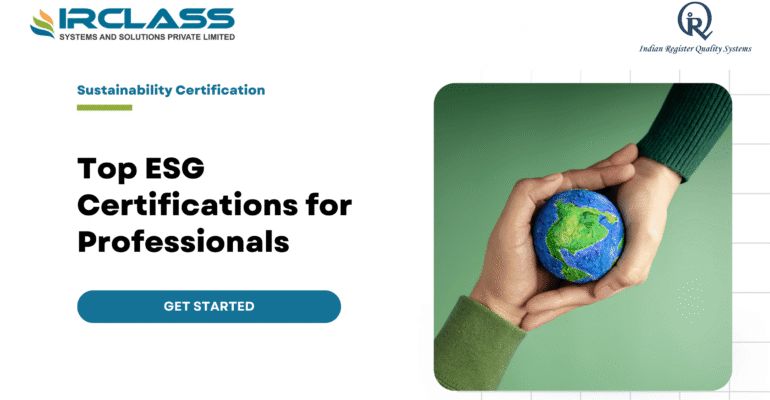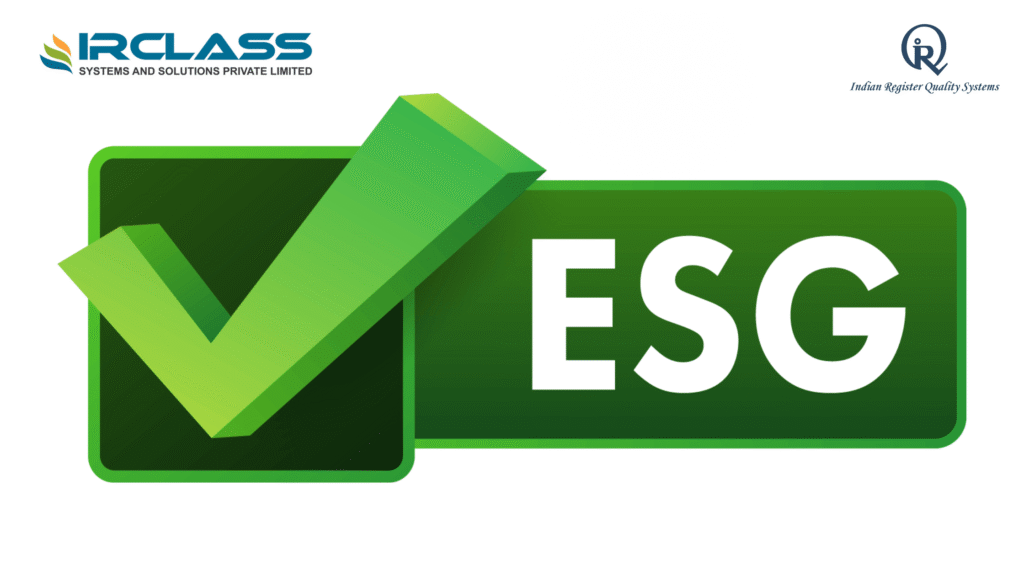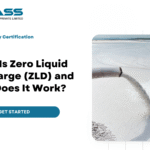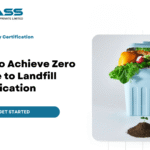Top ESG Certifications for Finance, Sustainability, and Compliance Professionals
August 22, 2025 2025-08-29 8:05Top ESG Certifications for Finance, Sustainability, and Compliance Professionals

Top ESG Certifications for Finance, Sustainability, and Compliance Professionals
Finance, sustainability, and compliance are now deeply connected through ESG. Whether you’re managing risk, allocating capital, or aligning with regulations, ESG is part of your role. But ESG frameworks are complex. Investors want accurate disclosures. Regulators expect transparency. Boards demand strategy. Professionals need the right training to keep up, and that’s where ESG certifications matter.
A good ESG certification teaches you how to interpret data, follow global standards, and apply ESG thinking to your daily work. Whether you’re building an investment model, conducting a sustainability audit, or writing a compliance report, the right certification helps you do it with accuracy and confidence.
Why ESG Matters in Finance, Sustainability, and Compliance
Each of these fields touches ESG in a different way. In finance, ESG influences credit ratings, valuations, and long-term investment decisions. In sustainability, it drives climate strategy, net-zero targets, and social impact. It is not about compliance; it is about aligning with international standards such as TCFD, GRI, and CSRD and avoiding greenwashing.
Without proper ESG knowledge, even the best professionals make mistakes. They misread disclosures. They apply the wrong metrics. Or worse, they leave out key risks. ESG certifications reduce that gap by training people in standards, risk assessment, and data reporting.
How ESG Certifications Support Different Roles
In finance, certifications help you integrate ESG into models and portfolios. You learn how to assess climate risks, interpret sustainability disclosures, and apply ESG metrics in credit decisions. This is now critical for investors, lenders, and risk managers.
In sustainability, certifications are more in-depth in terms of carbon accounting, supply chain risks, and stakeholder engagement. You get to know how to develop sustainability strategies that are compliant with regulations and investor demands.
In compliance, the focus is on frameworks and assurance. You learn how to map ESG risks, assess materiality, and ensure your company’s reports meet legal and audit standards.
Core ESG Skills Professionals Must Learn
A certification must teach practical, usable skills. Not just theory. ESG professionals now deal with:
- Materiality analysis and stakeholder mapping
- Greenhouse gas (GHG) accounting and emission scopes
- ESG risk identification and control mapping
- Alignment with global frameworks (GRI, TCFD, SASB, CSRD)
- ESG assurance, audit readiness, and data validation
These are not optional skills anymore. Without them, professionals can’t meet the expectations of regulators, auditors, and investors.
Choosing a Certification That Aligns With Your Role
Certifications vary in depth and focus. Some are entry-level, built for people just entering the ESG field. Others are advanced and designed for senior professionals working in risk, finance, audit, or strategy. Choose a certification that fits your function.
If you’re in finance, you need a certification that focuses on ESG integration in investment and credit. If you’re in compliance, you need something focused on disclosures and regulatory frameworks. If you’re in sustainability, you need one that goes deep into net-zero targets and lifecycle analysis.
A one-size-fits-all ESG certification rarely works. ESG roles are too diverse. Pick one that supports your specific career path.

How ESG Regulations Are Changing the Job Landscape
Across the world, ESG regulations are increasing. The EU has introduced CSRD, which mandates detailed ESG disclosures. India has made BRSR reporting compulsory for top-listed firms. The U.S. SEC has proposed climate risk disclosures. Other regions are updating their guidelines every year.
This has created demand for ESG-literate professionals. Companies need people who know how to read and write ESG reports, validate ESG data, and align disclosures with global frameworks. ESG certifications are now seen as essential by HR and compliance departments. In job descriptions, “ESG certified” is no longer a bonus. It’s often a requirement.
What Makes a Certification Credible
There are many ESG programs in the market. But not all of them are recognized. A credible certification should follow global standards. It should offer in-depth content and updated case studies. It should be backed by industry recognition.
The trainer profile also matters. You want instructors who have worked in ESG implementation, not just theory. You also want real examples of how companies handled ESG audits, how regulators reviewed sustainability disclosures, and what mistakes to avoid.
Look for certifications that include:
- Alignment with ISO or internationally accepted frameworks
- Clear technical training, not just buzzwords
- Assessment or project work to validate skills
- Updated modules with recent regulatory changes
- Industry recognition by employers and auditors
Format and Delivery Options That Work for Busy Professionals
Most ESG professionals are already working full-time. That’s why the format of the certification matters. Some programs are self-paced online courses. Others offer live sessions or workshops. Some include case studies, quizzes, and simulations.
If you’re in a technical role like internal audit or compliance, you may benefit from instructor-led sessions. If you’re in strategy or consulting, a project-based certification may be more useful.
Choose a format that matches how you learn and how you work.
The Link Between ESG Certification and Career Growth
Professionals with ESG certifications are getting promoted faster. They’re also being hired for specialized roles like:
- ESG Analyst or Risk Manager
- Sustainability Reporting Lead
- Compliance Manager (ESG-specific)
- Internal Auditor – ESG and Sustainability
- ESG Consultant for Supply Chain or Climate Strategy
These roles didn’t exist a few years ago. Now they’re in demand across sectors like banking, manufacturing, technology, and infrastructure.
ESG certifications give professionals the edge because they show readiness. Not just interest, but capability. Hiring managers look for proof of knowledge. Certifications provide that.
Future-Proofing Your Skills With ESG Training
ESG is not a trend. It’s a shift in how businesses operate and report. Financial disclosures now come with ESG metrics. Strategic plans now include climate and social risk. Boards are asking questions they never asked before.
This shift will continue. New laws will come. Reporting expectations will grow. Investors will want deeper insights. ESG-certified professionals will be the ones ready to answer.
Getting certified now prepares you for what’s coming.
Conclusion
Professionals in finance, sustainability, and compliance all play a role in ESG success. However, to meet the rising expectations of regulators, boards, and investors, they need proper training. ESG certifications provide that training, along with credibility and career mobility. IRQS offers globally aligned ESG certification programs that are designed for real-world application across sectors, job roles, and reporting requirements. If you’re looking to build expertise that lasts, start with a certification that fits your future.
FAQs
1. To whom is an ESG certification applicable?
It should be considered by anyone working in the fields of finance, sustainability, compliance, internal audit, or strategy. The SG certifications can guide you in knowing the frameworks, evaluating risks, and aligning your work with international reporting standards.
2. Are ESG certifications accepted by businesses?
Yes. Professionals with SG certification are sought after. These certifications are used by companies to prove that you are aware of sustainability regulations, climate risk, and ESG reporting requirements.
3. Is prior ESG experience required to 1 get certified?
Not always. There are certifications that are aimed at beginners, and they teach the basics. Others are more advanced and are targeted at those already working in ESG, risk, or sustainability.
4. How long does ESG certification take?
It is program-dependent. Others take a couple of days Others take a few weeks. Online courses tend to be self-paced, whereas classroom or instructor-led courses are scheduled.
5. What is the reason to select a certification that is aligned to ISO standards?
Certifications according to ISO standards are based on internationally accepted guidelines. They are more practical, well-known, and usually contain audit and compliance training that is applicable across industries.





